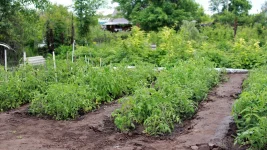Russians risk fines or jail time for growing certain plants at summer homes. Igor Pozdnyakov from Roskachestvo warned gardeners about prohibited crops. He told Lenta.ru that penalties become worse when authorities find large amounts of banned plants or mushrooms.
Gardeners must avoid several specific plants. The banned list contains Banisteriopsis caapi, harmala, blue lotus, coca bush, khat, Ipomoea tricolor, narcotic poppies, sage of prophets, Hawaiian rose, and mimosa hostilis. Laws also forbid growing mushrooms with psilocybin or psilocin, chemicals found in over 200 mushroom types.
People who grow these prohibited plants face serious consequences. For large-scale growing, penalties can reach 300 thousand rubles in fines. Courts might order up to 480 hours of community service instead. Some cases lead to freedom restrictions or prison sentences lasting two years. Russian authorities monitor garden plots for these illegal substances.
Gardeners must avoid several specific plants. The banned list contains Banisteriopsis caapi, harmala, blue lotus, coca bush, khat, Ipomoea tricolor, narcotic poppies, sage of prophets, Hawaiian rose, and mimosa hostilis. Laws also forbid growing mushrooms with psilocybin or psilocin, chemicals found in over 200 mushroom types.
People who grow these prohibited plants face serious consequences. For large-scale growing, penalties can reach 300 thousand rubles in fines. Courts might order up to 480 hours of community service instead. Some cases lead to freedom restrictions or prison sentences lasting two years. Russian authorities monitor garden plots for these illegal substances.












